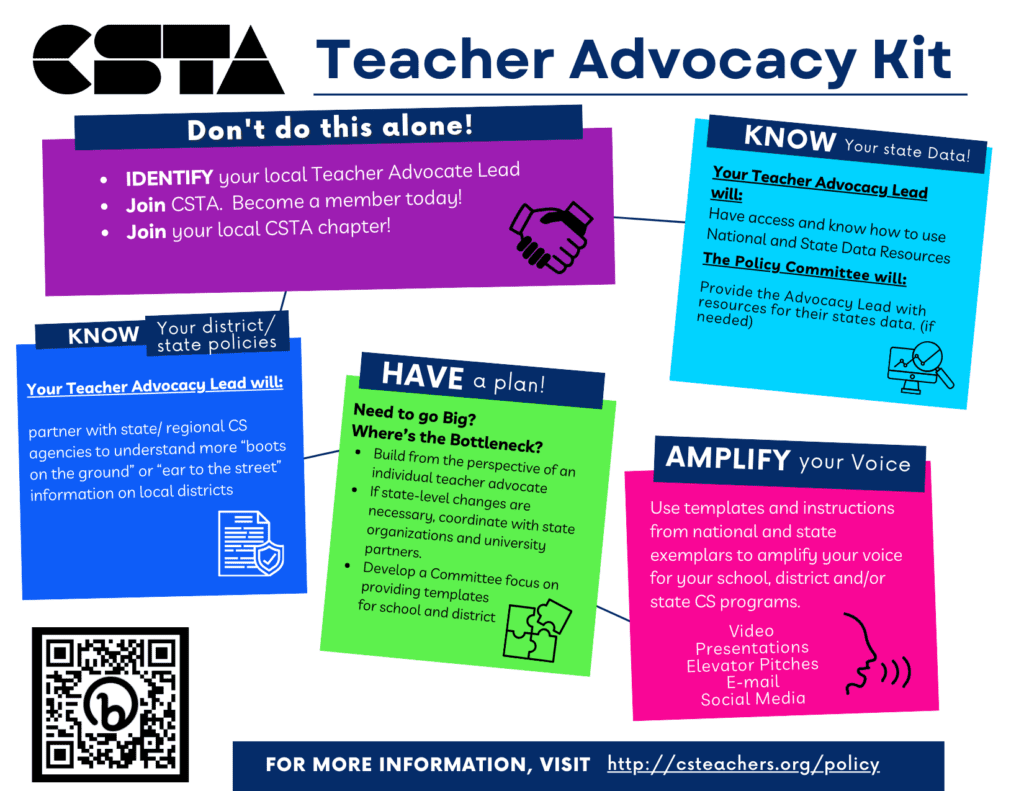Guidance for Teacher Advocates from the CSTA Policy Committee

CSTA’s teacher-led Policy Committee consists of 8–12 volunteers who meet regularly to develop and refine recommendations and resources. The committee’s purpose is to:
- Vet, develop, and adopt a set of CSTA-endorsed policy recommendations
- Develop a toolkit to support CSTA members and Chapter Leaders in effectively advocating for these policies at the state level.
The committee focuses on policies to increase entry, retention, and course/degree completion of groups historically underrepresented in CS. They present recommendations and resources annually at the CSTA Chapter Leadership Summit, held in conjunction with the CSTA Annual Conference.
Teacher Advocacy Kit

Policy Committee Information
Responsibilities
- Attend monthly committee meetings, estimated at about 2 hours per month.
- Complete up to 2 hours of asynchronous work per month.
- Participate in kick-off and planning meetings at the CSTA Volunteer Summit.
- Present to CSTA chapter advocacy leaders at the annual Chapter Leadership Summit, held in conjunction with the CSTA Annual Conference.
* CSTA pays for associated travel expenses.
Qualifications and Selection Criteria
- Resides and works in the United States
- Current or past educator with at least 3 years of CS teaching experience
- Demonstrates commitment to disrupting inequities in K–12 CS education
- Demonstrates leadership in the K–12 CS education community (e.g., CSTA Chapter Leader)
- Has familiarity with, or an interest in learning about, state-level policy levers
- Has some experience advocating for K–12 CS education at the state or national level
Interested in joining the Policy Committee?
